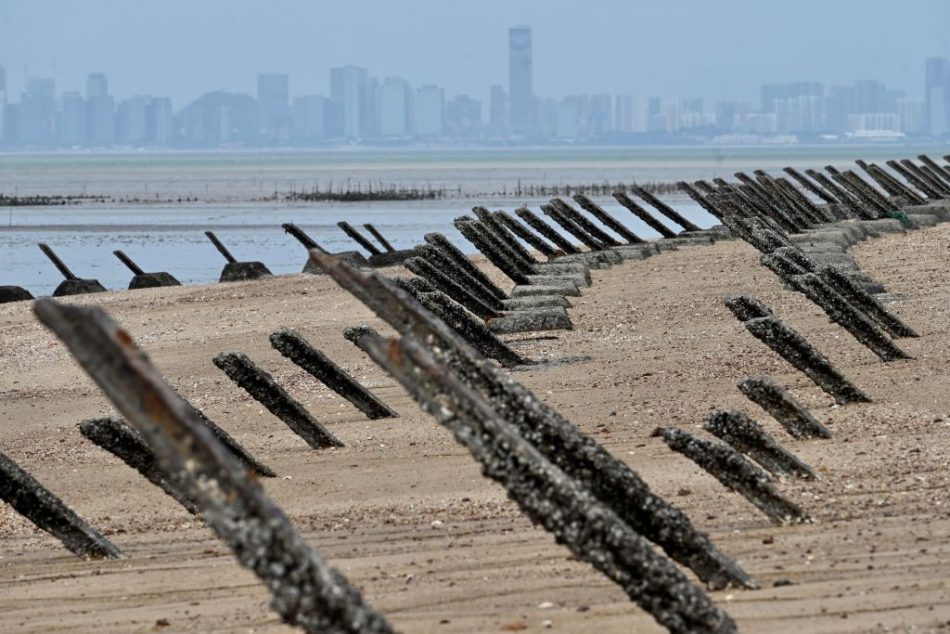Would a nuclear-armed Taiwan deter China?

With President-elect Joe Biden set to take office on 20 January, there’s little time to formulate a China policy, though it’s clear his administration’s approach to Beijing could have long-term implications for stability and peace in Asia. Unquestionably, the People’s Republic of China’s escalating aggression towards Taiwan will be the administration’s greatest strategic challenge.
Decisions made by the Biden administration will likely play a role in determining whether war between China and Taiwan becomes a reality and the lengths to which Taiwan feels it must go to defend its freedom.
Two years ago, President Xi Jinping publicly declared that China would use force to ensure Taiwan’s reunification if it refused to go peacefully. Since then, the People’s Liberation Army has expanded its harassment and testing of Taiwan’s defences through naval, air and cyber aggression.
For many Taiwanese, the recent crackdown on Hong Kong offers a window onto what may come if Taiwan reunifies with the mainland. It should come as no surprise, then, that support for reunification is at an all-time low among Taiwanese, with around 90% in opposition.
Weak security guarantees from the United States, coupled with escalating aggression from China, may soon present Biden with a Taiwan that believes its only option for survival is to take a page from the Israeli playbook and restart a covert nuclear weapons program. When Taiwan went down that path between 1967 and the late 1980s, the government in Taipei ultimately backed away from nuclear weapons because it appeared China was liberalising and heading toward democratisation.
That is certainly no longer the case. Xi is proving a better authoritarian than any of his post-Mao predecessors, and the 2018 decision of the National People’s Congress to remove term limits enables him to remain president and party chair indefinitely.
According to China expert Michael Pillsbury, author of The hundred-year marathon, the Chinese Communist Party intends to integrate Hong Kong and Taiwan back into China in time to achieve ‘Middle Kingdom’ status by 2049—the centennial of the CCP’s victory over the Guomindang in the Chinese civil war.
For many of the China experts on whom the Biden administration will rely for advice, working collaboratively with China is a tenet of the faith that cannot be questioned. They also see a policy of ambiguity concerning US security guarantees with Taiwan as essential.
However, as the PLA rachets up pressure on Taiwan to reunify, Taiwan’s president, Tsai Ing-wen, and her successor will likely find themselves in a position where they must take whatever steps are necessary to ensure the continued independence of a free and democratic Taiwan—either in coordination with the US or independently.
Taiwan’s leaders sensed the urgency to develop their own nuclear capability once already because of the normalising of relations between the US and the PRC. During the 1970s, Taiwan produced plutonium for its indigenous weapons program. While plutonium production was halted because of American pressure in 1976, the military government in Taiwan continued with its secret nuclear weapons program until the 1980s, which included a successful nuclear reaction.
Taiwan is already a latent nuclear power. The move to nuclear weapons would not take long given its current materials and technical capacity.
Taiwan already has two operational nuclear power plants on opposite ends of the island that could produce plutonium. It could use a ‘Japan option’ of enriching its radioactive materials for weaponisation in a short timeframe.
Would a nuclear-armed Taiwan deter the PRC from an invasion? The use of nuclear weapons by a nuclear-armed Taiwan would certainly make an already difficult invasion for Xi and the PLA more costly. History suggests that once Taiwan has nuclear weapons, the PRC will become much less aggressive towards it—making the development of nuclear weapons more attractive.
Tsai’s Democratic Progressive Party, despite its tense relations with the mainland, represents the anti-nuclear movement within Taiwan. However, views change when survival is at stake. It is not a bridge too far to suggest that a reluctant Biden administration and an aggressive Xi might lead Taiwan to see the utility of a nuclear arsenal.
It’s also worth noting that the US has never invaded a nuclear-armed adversary—a fact not lost on the Taiwanese.
Many China experts in the American foreign policy community will dismiss the warning that Taiwan might restart its covert nuclear weapons program. This is because too few American China experts understand the escalating pressure Taiwan faces from Xi’s China.
The Biden administration has time to devise a policy that ensures Taiwan’s security while discouraging the pursuit of nuclear weapons. However, half measures, ambiguity or doing nothing is no longer an option. Taiwan will protect its freedom with or without America’s help.